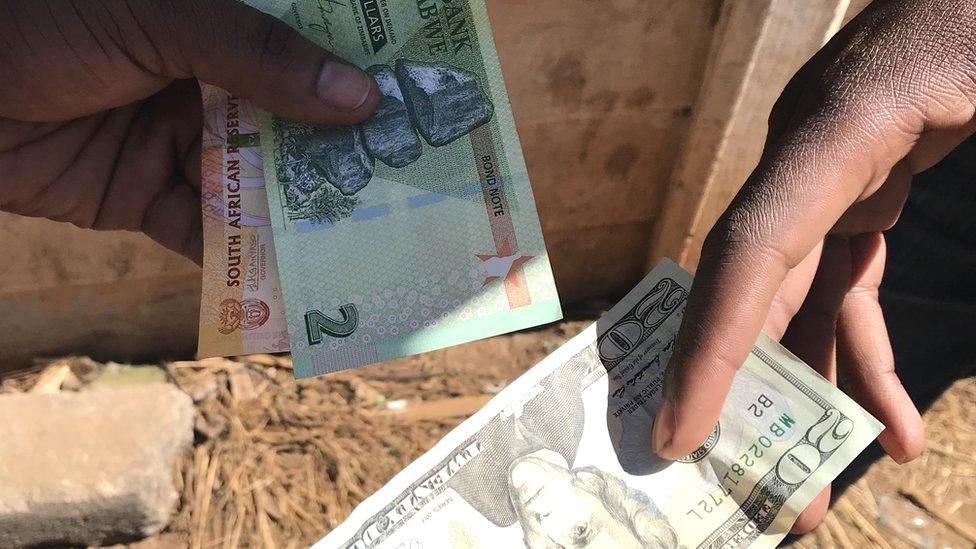Zimbabwe opposition accuses government of brutal crackdown
- Published
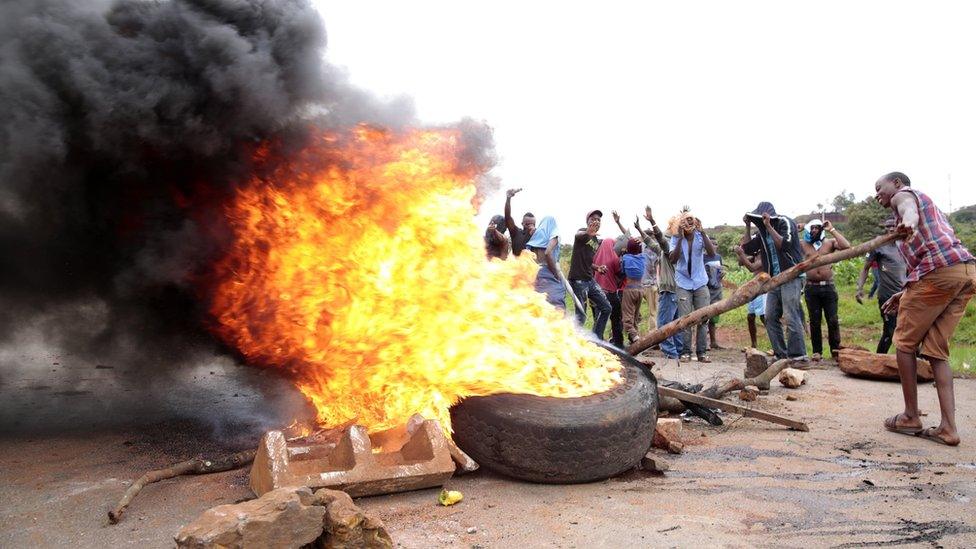
Protesters burning tyres in the Zimbabwean capital Harare
Zimbabwe's opposition says its members have been victims of a brutal crackdown in response to violent protests against a sharp rise in the price of fuel.
Movement for Democratic Change leader Nelson Chamisa said many of its members had been detained including four MPs.
He said security forces had attacked families in their homes.
The government has blamed the MDC for stoking the violence. Rights groups say at least 12 people have been killed but this has not been officially confirmed.
The trade union umbrella group that called the protests, the Zimbabwe Congress of Trade Unions, says its leader, Japhet Moyo, has also been arrested.
Earlier it emerged that South Africa had rejected a request from Zimbabwe for an emergency loan of $1.2bn (£932m) in December.
The government had hoped the cash would help stabilise the economy and resolve fuel shortages in the country.
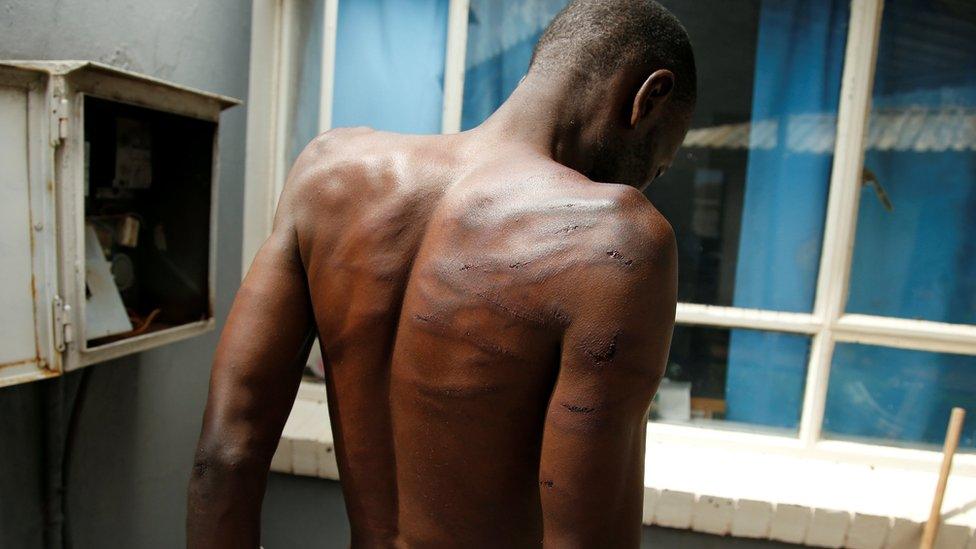
The UN has called on the government to halt the "excessive use of force"
On Sunday, the government said the security forces' actions were just "a foretaste of things to come".
News of the violent crackdown emerged despite the country's internet, including social media and messaging apps, being cut off.
Speaking to the state-owned Sunday Mail newspaper, a presidential spokesman blamed the MDC for the violence that has accompanied the protests., external
Roads were barricaded by protesters last week
"The MDC leadership has been consistently pushing out the message that they will use violent street action to overturn the results of [last year's] ballot," George Charamba said.
The opposition rejected a court ruling in August that confirmed that President Mnangagwa had beaten Mr Chamisa.
What is the opposition saying?
"There is no justification whatsoever of having soldiers with live ammunition, with guns, machine guns, AK47 on the streets, beating up citizens," Mr Chamisa told the BBC.
"People are being approached in their homes, they are being taken out of their homes with their families even if they are sleeping... a lot of people have been arrested for no apparent reason."
The MDC's national chairperson, Thabitha Khumalo, said that she had gone into hiding after the police and military turned up at her home at night.
Why has the fuel price increased?
Zimbabwe's President Emmerson Mnangagwa announcement of a steep increase in the fuel price over a week ago led to angry protests in the capital, Harare, and the south-western city of Bulawayo.
The price rise was aimed at tackling shortages caused by an increase in fuel use and "rampant" illegal trading, he said.
But many Zimbabweans, worn down by years of economic hardship, suddenly found they could not even afford the bus fare to work.
The new prices mean Zimbabwe now has the most expensive fuel in the world, according to GlobalPetrolPrices.com, external
Many feel that the president, who has been on a tour of Russia and Asian countries, is failing to live up to his promises following his election last year in disputed polls.
He has been struggling to revive the economy, which is experiencing high inflation while wages have stagnated.
The president has now cut short his foreign tour to return home "in light of the economic situation", he said on Twitter.
Access to the internet was intermittent throughout the week, but people found they were unable to use social media and the WhatsApp messaging platform, which has become a common way to share news.
- Published19 January 2019
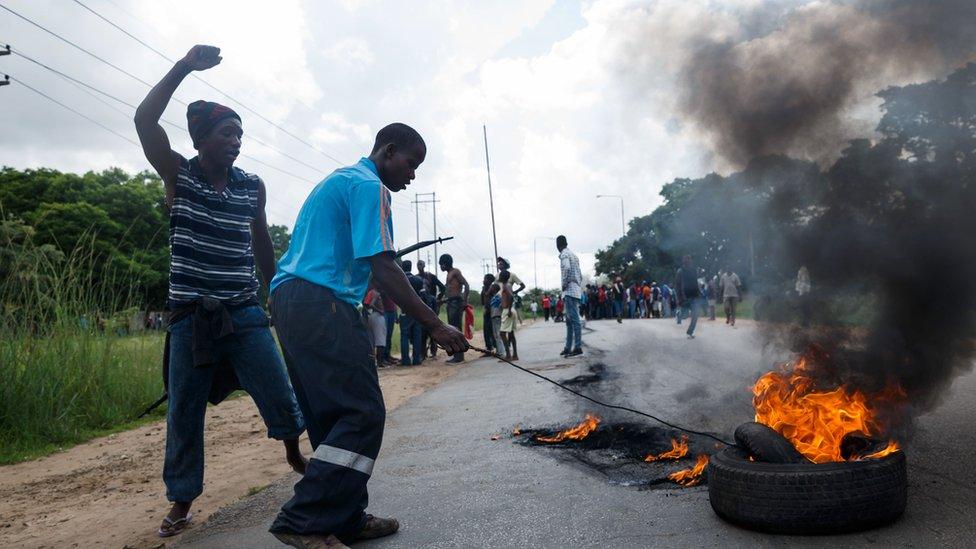
- Published15 January 2019
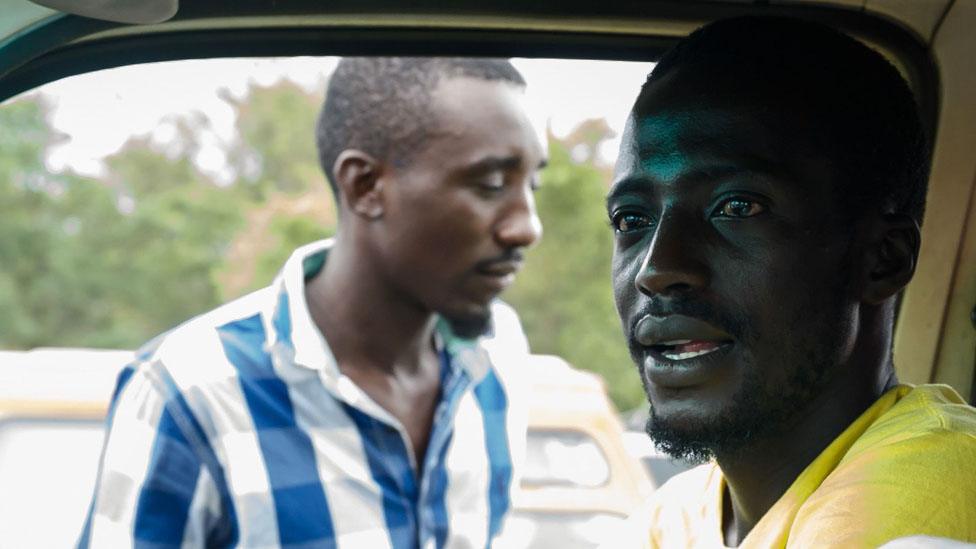
- Published25 December 2018
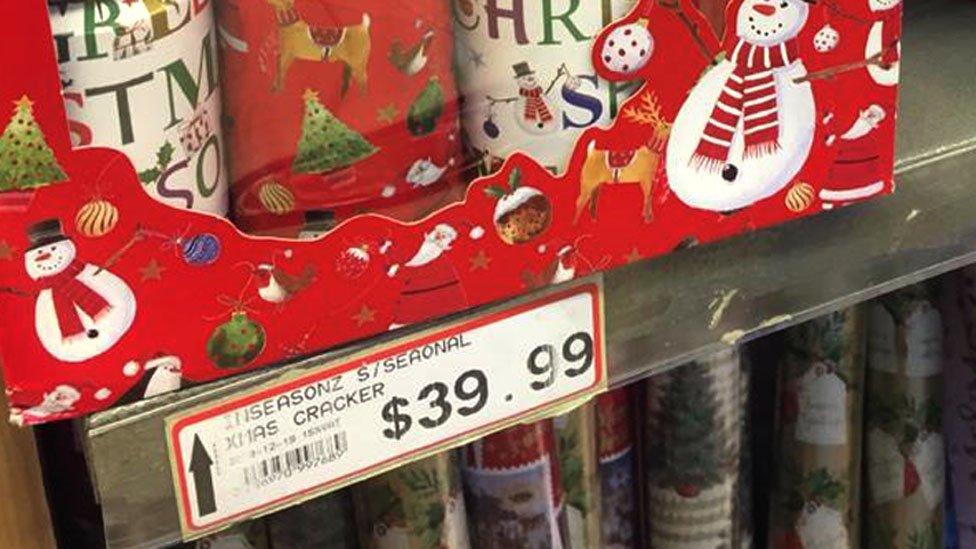
- Published12 October 2018
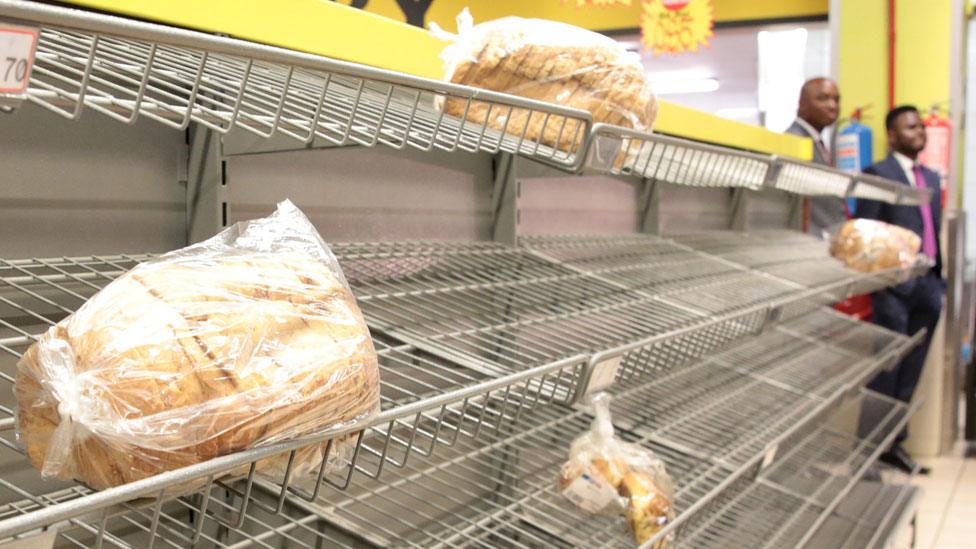
- Published25 July 2018
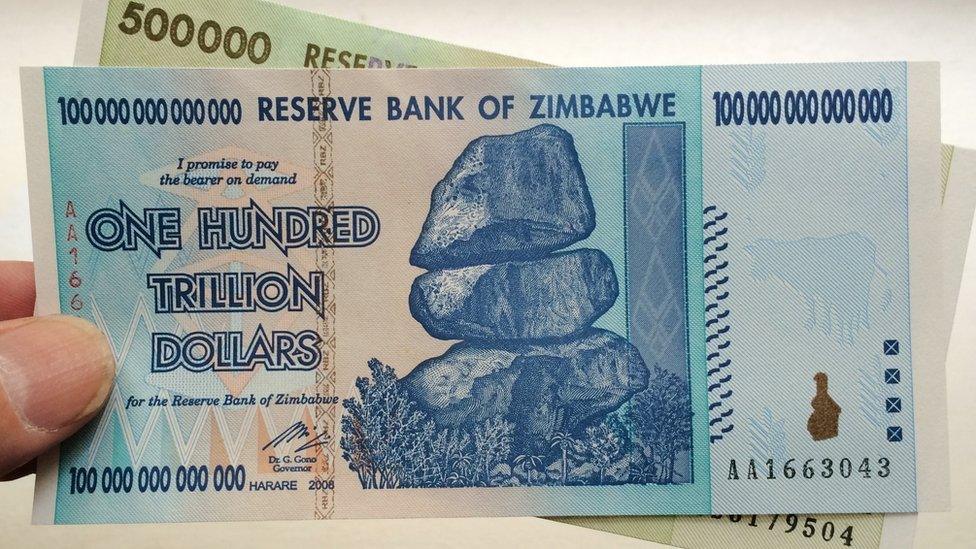
- Published26 July 2018
